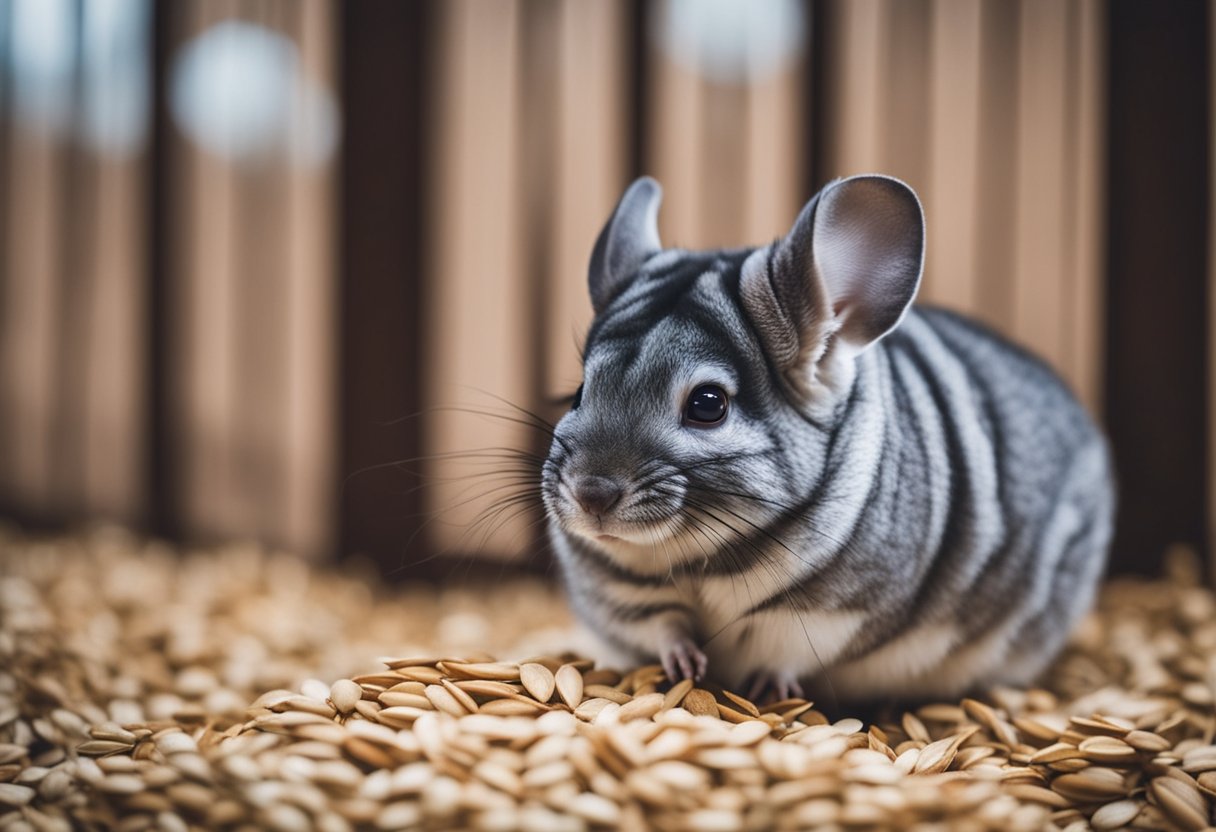Can Chinchillas Eat Oats? Understanding Their Nutritional Needs
Oats can be a tempting treat for your chinchilla, but you may wonder if they are safe and healthy. Yes, chinchillas can eat oats, but only in moderation. Understanding the right way to include this food in their diet is crucial for their health and happiness.

As a pet owner, it’s essential to know how to balance treats with your chinchilla’s main diet. While oats provide some nutritional benefits, like energy and certain nutrients, they should not replace the high-fiber hay and pellets your chinchilla needs. Learning the proper portions and frequency will help keep your chinchilla healthy while allowing them to enjoy a tasty snack.
Key Takeaways
- Chinchillas can safely eat oats in limited amounts.
- Portion control is key to preventing weight gain.
- Oats should complement, not replace, a chinchilla’s regular diet.
Nutritional Profile of Oats for Chinchillas

Oats can provide some beneficial nutrients for your chinchilla. It’s important to understand their carbohydrate, protein, vitamin, and mineral content to ensure you feed them appropriately.
Carbohydrates and Fiber Content
Oats are primarily made up of carbohydrates, which are a source of energy for chinchillas. In addition to providing energy, they contain both soluble and insoluble fiber.
Fiber is crucial for digestive health in chinchillas. It helps maintain a healthy gut and prevents issues like constipation.
Though oats offer fiber, they do not have enough to replace the high-fiber diet that chinchillas need, primarily from hay. Moderate portions of oats, such as 2-3 pieces, can be beneficial as an occasional treat.
Protein and Fats in Oats
Oats contain a moderate amount of protein, which is essential for muscle repair and growth. However, they should not be the main protein source in your chinchilla’s diet.
Typically, oats have around 12-15% protein. This is beneficial in small amounts but should be balanced with other protein sources such as hay and pellets.
Oats also include small amounts of fats, generally ranging from 5-7%. While these fats are mostly healthy, they can lead to weight gain if given in large quantities. Maintain portion control to prevent obesity while still offering this tasty treat.
Vitamins and Minerals Present
Oats are a source of several vitamins and minerals important for chinchillas. They contain B vitamins, which aid in energy metabolism and overall health.
In terms of minerals, oats provide magnesium, phosphorus, and iron. Magnesium is vital for bone health, while phosphorus supports cellular function.
Keep in mind oats are low in calcium, which is necessary for chinchillas. A diet overly reliant on oats can lead to nutritional imbalances. Always ensure hay and pellets are the primary dietary components.
Feeding Oats to Chinchillas

When considering oats for your chinchilla, it’s important to focus on portion size, the benefits oats can bring to their diet, and the potential risks involved. Proper understanding of these factors will help ensure a healthy and balanced diet for your pet.
Portion Size and Frequency
Oats should be given to your chinchilla in limited amounts. The recommended portion size is just 2 to 3 oats at a time. You should only offer them this treat once or twice a week. This helps prevent obesity and ensures that oats do not replace their primary diet of hay and pellets, which are rich in fiber.
Too many oats can lead to weight gain and other health issues. Always monitor your chinchilla’s body condition and adjust treats accordingly. If your pet seems to gain weight, reduce the amount of oats or consider eliminating them from the diet.
Benefits of Including Oats in Diet
Including oats in your chinchilla’s diet can provide valuable nutrients. Oats are a good source of carbohydrates and contain vitamins like B5 and B9. These nutrients contribute to healthy fur and support overall well-being.
In moderation, oats may help with digestion. Their fibrous structure can aid in bowel movements when given as an occasional treat. Chinchillas enjoy the taste, which makes oats an appealing option for training or bonding.
Potential Risks and Considerations
While oats can be a tasty addition, there are some risks to keep in mind. If fed in large quantities, they may lead to obesity due to their high calorie content. Overeating oats can also disrupt a chinchilla’s digestive system.
Chinchillas need a high-fiber diet primarily made up of hay. Oats do not provide adequate fiber, so they should not replace essential food sources. Always monitor your pet after introducing any new treats to ensure they respond well.
Resources

If you want to learn more about feeding chinchillas, consider these useful resources:
- Dietary Guidelines
- Check out websites dedicated to pet care, which often detail what chinchillas can eat.
- They will explain the importance of a balanced diet.
- Specific Information on Oats
- You can read more about feeding oats to chinchillas on Love My Chinchilla.
- This source discusses the quantity and frequency for feeding oats.
- General Feeding Tips
- For a broader understanding, visit Chef’s Resource.
- This site highlights safe and unsafe foods for chinchillas.
- Treat Size Recommendations
- To find out how many oats you should give, refer to Planet Chinchilla.
- They provide clear guidelines on portion sizes.
- Health Considerations
- It’s important to monitor your chinchilla’s health. Review information from trusted animal care websites.
These resources will help you ensure a proper diet for your chinchilla and make informed choices about treats like oats. Remember to consult with a veterinarian for personalized advice.
Frequently Asked Questions

This section addresses common questions regarding the diet and food safety for chinchillas. It covers daily dietary needs, safe vegetables, toxic foods, grain consumption, permissible human foods, and cereals.
What items should be included in a chinchilla’s daily diet?
A chinchilla’s daily diet should primarily consist of high-quality hay. Timothy hay is a popular choice as it provides essential fiber. You should also include specially formulated chinchilla pellets that are low in fat and high in fiber to meet their nutritional needs.
Which vegetables are considered safe for chinchillas to consume?
Safe vegetables for chinchillas include small amounts of leafy greens like kale, romaine lettuce, and cilantro. You can also offer bell peppers and carrots, but only in moderation. Avoid starchy or sugary vegetables, as they are not suitable for chinchillas.
What food items are toxic to chinchillas?
Toxic foods for chinchillas include chocolate, caffeine, and any foods high in sugar or fat. Certain fruits, like grapes and citrus, should also be avoided. Always do thorough research before introducing new foods to ensure they are safe.
Can chinchillas have grains as part of their diet?
Grains can be included in a chinchilla’s diet, but only in small amounts. You can offer them occasional treats like oats or barley. However, it is crucial to limit these grains to prevent weight gain and other health issues.
What human foods are permissible for chinchillas to eat?
Some human foods that are safe for chinchillas include small pieces of dried fruits or nuts. These should be given only sparingly, as treats. Remember, the primary diet must consist of hay and pellets for proper nutrition.
Are there any cereals that chinchillas can safely eat?
Chinchillas can have small amounts of certain cereals, particularly those that are whole grain and low in sugar. Plain, unsweetened oats can be offered occasionally. Always check ingredients to avoid harmful additives.

